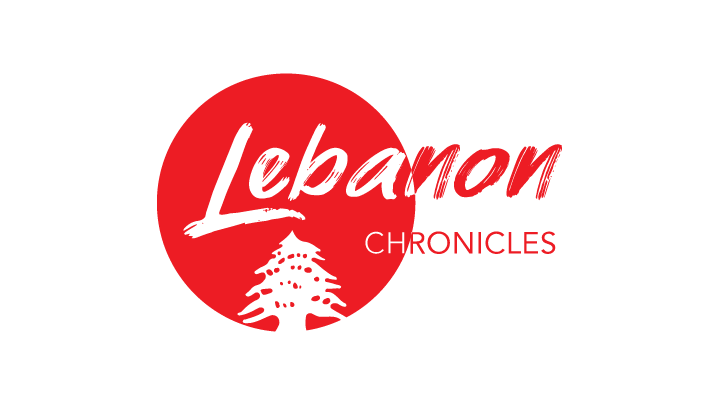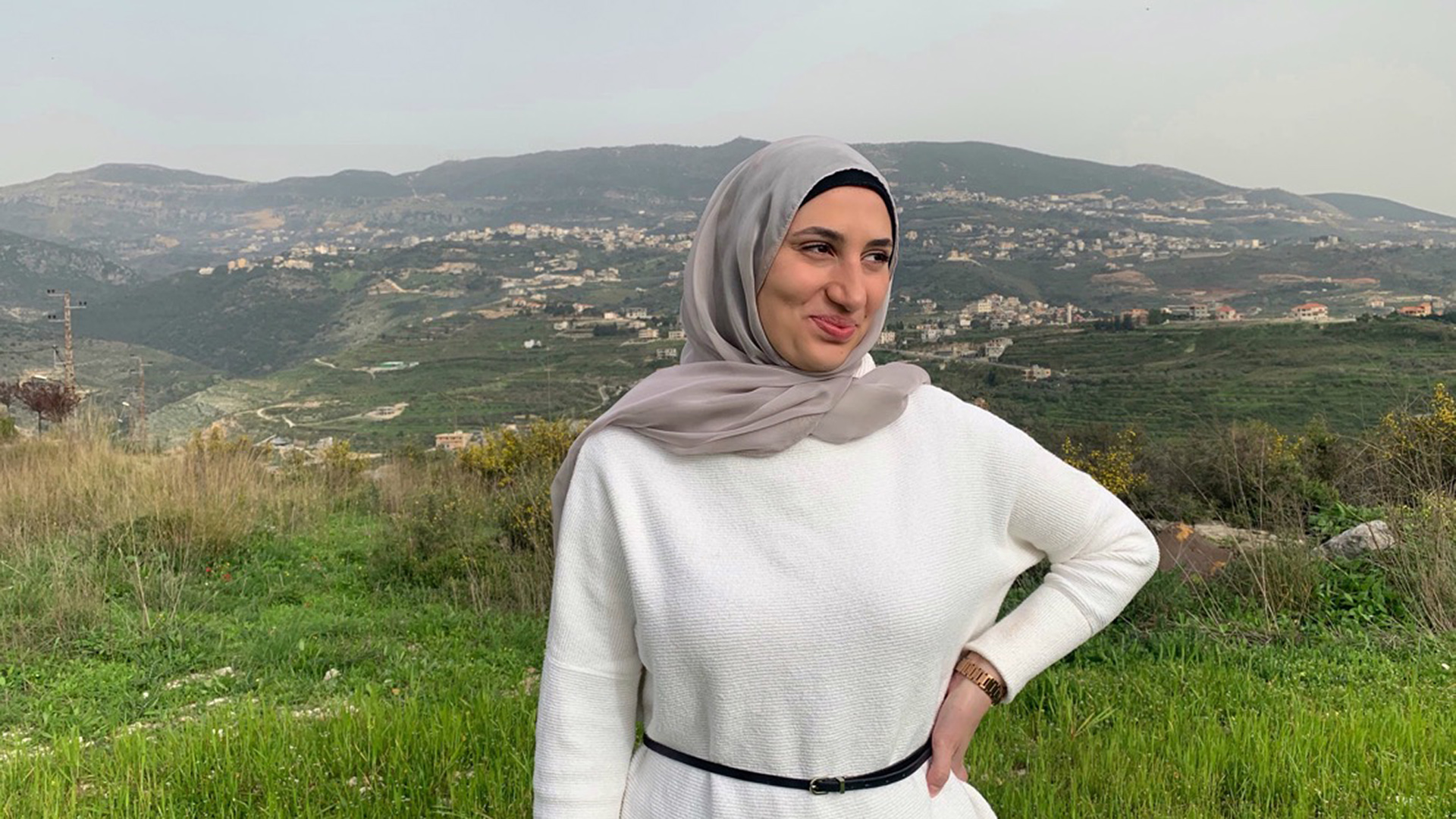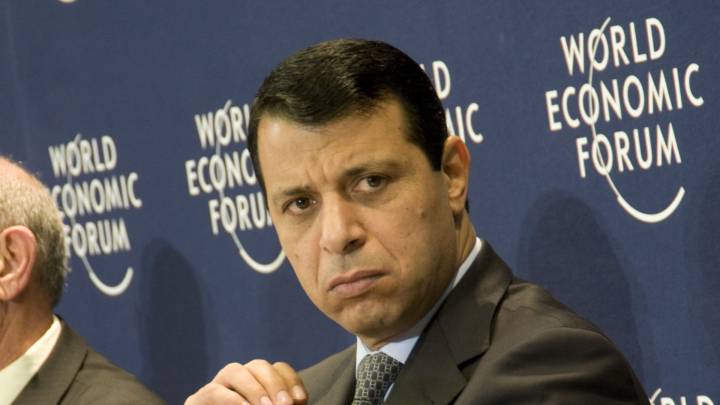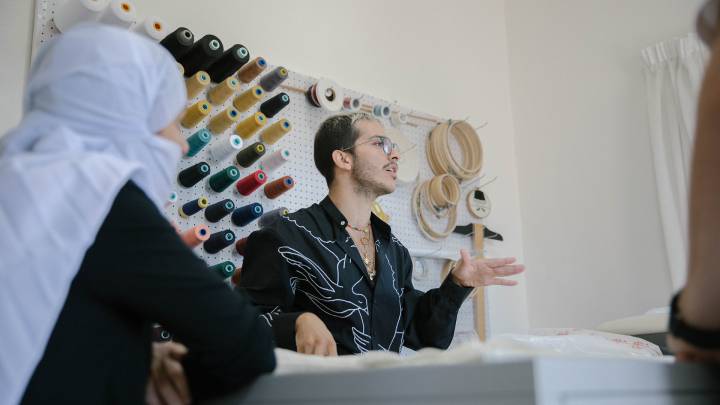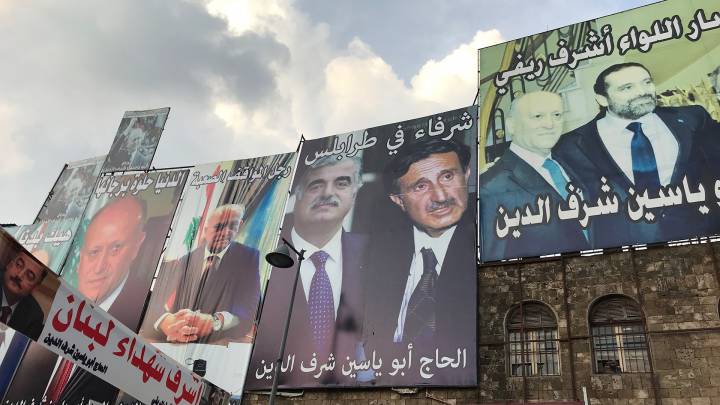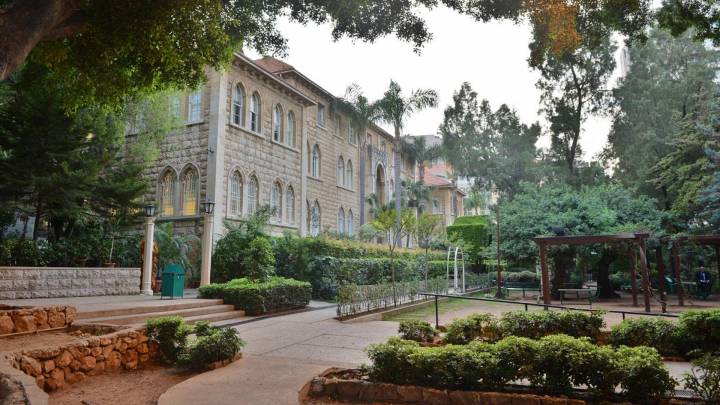Ghadir Hamadi always felt that her roots were firmly in the southern Lebanese town of her ancestors. Then Covid-19 hit – and only then did she discover what life is really like there.
“I’m a Southerner.” That is what I always say to my friends, to anybody I meet really. The stories my father had told me about his childhood in his village in southern Lebanon, amid war, economic meltdowns, years of occupation and other hardships, were enough for me to know where my roots are. This is where I thought I belonged.
Kfar Melki is the village my father left over two decades ago for Saudi Arabia where he found work in the oil industry. It is also where I am quarantining along with my mother and my four sisters. I had never lived in the South before, until the Covid-19 pandemic stuck throwing me back to my supposed roots.
I packed two pairs of pyjamas, a tracksuit and two pairs of running shoes into a handmade backpack. A birthday present from my sister from two years ago. I slung it over my shoulders and headed off to the land of my ancestors. A place which I had only ever visited for a handful of days at a time. It turned out to be a long overdue rendezvous with the past, triggering a train of thought about who I really was and where I really came from.
Kfar Melki is about a 20-minute drive east from the southern Lebanese city of Saida. The village is nestled among olive groves and looks out upon vast fields of gardenia, roses, and dandelions. Its inhabitants are predominantly Shia Muslims. A giant sail or flame emerges from the centre of Kfar Melki’s only roundabout. The images of deceased fighters plastered on surrounding billboards look on as a yellow flag flutters above the structure.
When my quarantine began, I found myself constantly on the verge of a panic attack. As the number of confirmed cases of coronavirus grew worldwide my fear only heightened. But I soon realised that this anxiety could not remain with me in my new surroundings.
This change of mood descended on a morning trip to the local supermarket. I was buying groceries, dressed as usual in my facemask and gloves, while frantically spraying everything whith a huge bottle of sanitiser.
Among my friends, people could be heard speaking a mixture of Arabic, Urdu and English. We came from Lebanon, Jordan, Egypt, the United States, and Pakistan.
To my right was an old lady. She was calmly putting her goods onto the conveyor belt and into her basket, carefully observing the hygiene rules, but smiling reassuringly all along and nodding to everyone. I was stunned.
An elderly lady stood beside me calmly taking her items out of her basket and placing them on the checkout conveyor belt. She carefully observed the hygiene rules as she did so, smiling reassuringly at everybody who passed by. I was taken aback.
“Could I ask how you’re keeping so calm? My question met with laughter: “I’ve lived through war. This is a piece of cake, we’ll overcome it. Until then let’s not lose our cool.”
Today I can say for sure that I had a privileged upbringing. I never fell asleep feeling unsafe. I grew in Saudi Arabia, where my father moved to in 1997 after finding a job at Saudi Aramco.
We lived in the eastern coastal city of Al-Khobar. My sisters and I attended a private international school where we were taught in English. Among my friends, people could be heard speaking a mixture of Arabic, Urdu and English. We came from Lebanon, Jordan, Egypt, the United States, and Pakistan. As a veiled Muslim, I pray five times a day, I fast on Ramadan, but i do not like to be reduced to my religiousness or denomination. Observing the core principles of Islam is just as important to me as respectful behaviour towards my elders, my friends and others around me.
Our daily lives revolved around our compound where we could enjoy a pool, a basketball court, a volleyball court and a recreational centre where we celebrated our birthdays. I enjoyed growing up in Saudi Arabia, so much so that I even pinned a small badge of the Saudi flag to my school backpack.
On one of the first days of my confinement in Kfar Melki I went for a short hike in the nearby forest. I encountered other people, albeit at a socially acceptable distance. As we passed by one another, I heard English, French, Italian and other languages my ears are not yet familiar with. Some were dressed modestly, while others were clad in flashy tracksuits and wore fashionable sunglasses.
In the past few decades Kfar Melki has grown from a village to a community of more than 60,000 inhabitants.
Soon I learned that most of them were like me. They were the children of those who had long fled this village, mostly during the war. They had now returned to a place where they had never left for a period of confinement.
We are Lebanon’s “third culture kids”, citizens of everywhere and nowhere. US sociologist Ruth Hill Useem first coined the term in the 1950s for children who spend their formative years in places other than their parents’ homeland. A third culture kid adopts characteristics of both cultures, forming a unique hybrid culture. It is a phenomenon not exclusive to Lebanese migrants, but given the sheer size of the country’s diaspora community, maybe as large as ten million, it is an experience not unfamiliar to many Lebanese.
During my time in Kfar Melki I spoke to some of the younger visitors who like me had an international background. One of whom was 23-year-old nursing student Ogarit Lore Najdi. Having grown up in Detroit, she too found herself quarantined in her parents’ village. She was shocked at how lightly older locals seemed to be taking the current pandemic: “My own grandfather got upset when I wouldn’t kiss him when I arrived.” After gently convincing him that it was not personal, he finally relented and kept his distance. Ogarit could not comprehend how the dire personal histories of the village elders had affected their resilience, shaping their indifference to the pandemic.
And there was Suheila Amen, a 40-year-old international and diplomatic relations consultant. She too had spent her childhood in Detroit but had now realised the extent to which her village had changed since then: “When I came here as a kid and as a teenager people stood on their balconies and front porches, greeting each passer-by, smiling and nodding at strangers. That has disappeared. The town has become anonymous much like the big cities.”
In the past few decades Kfar Melki has grown from a village to a community of more than 60,000 inhabitants. It boasts two supermarkets and dozens of smaller shops. There are four mosques, a couple of Islamic centres, sandwich shops, and shisha cafés.
Kfar Melki is not purely a community only of self-made international traders, of the rich and upper middle class.
Suheila had expected to quarantine in the village of the 90s, but this place had long-since vanished. “In Michigan, the Lebanese community worked hard to preserve the Lebanon our parents knew. But now I know this is not the reality anymore and that shocked me.”
Before the civil war, Kfar Melki was a rather apolitical and remote farming community. Since then it has become much more connected to the outside world. Many of the villagers who left during the last four decades, especially during the war, have returned – at least to build themselves houses in their old community to visit during their holidays.
Their various migratory heritages are reflected in the village’s architecture. Some of the people who lived in the Gulf have built lavish houses with enormous black gates, indoor pools, extravagant gardens, and trees so carefully trimmed that they seem like statues. Some who spent time in Europe adopted a more minimalist approach erecting clean, featureless buildings amid foreign surroundings. Others preferred to adorn their dwellings with brick roof tiles and to paint them so bright that they could have been taken from Italian postcards.
Kfar Melki is not purely a community only of self-made international traders, of the rich and upper middle class. It is also a simple farming village populated by those who have always struggled to get by and may have never ventured outside southern Lebanon in their entire lives. Their worldview proved to be quite different.
One of them is Sami Hasanen, a 92-year-old retired carpenter. Sami is a light-skinned tall man with broad shoulders and rough calloused hands. He has lived through the civil war, the Israeli military presence in southern Lebanon and the last major war in 2006.
The coronavirus is the least of Sami's concerns right now. He is more concerned about his two sons and his daughter who live in Dubai. He has not seen them in over a year.
The coronavirus is the least of his concerns right now. He is more concerned about his two sons and his daughter who live in Dubai. He has not seen them in over a year. “People in this village think that when someone works in the Gulf, they instantly become rich. That’s far from the truth. My kids work day and night. They are secondary school teachers in the morning, and private tutors in the afternoon and can barely make ends meet.”
Sami confided: “I’ve lived a long life and I’ve seen many things, things that at times I wish I hadn’t seen.”
He kept returning to the period between 1982 and 2000. Those 18 years may have shaped his life more than any others. How so? – “We felt helpless”, he said.
“Teenagers would throw rocks at the Israeli tanks when the soldiers conducted night raids. When their army took the men from the village away to the notorious Al-Khiam prison, their wives attacked them with sticks or they would pour oil over them.”
Salwa Haidar is a 66-year-old widow from Kfar Melki. Her soft wrinkles betrayed her life experience, her dark eyes the horror of what she had witnessed in the village. Her gentle voice recounted how, during the war in 2006, her husband had been too ill to be evacuated, so they stayed behind in Kfar Melki. “Bombs were raining on the village, but I had faith in God that we would be fine, and we survived the war, but my diabetic husband died shortly after.”
These dark chapters in the history of Lebanon and Kfar Melki were never really discussed in our family. My parents did not want saddle us with such a burden.
Only by listening to Sami dwell on the local resistance to the Israeli military presence and to Salwa telling her experiences of living through the 2006 war did I learn just how deep the impression of these troubled times was on the identity of the village’s inhabitants.
These dark chapters in the history of Lebanon and Kfar Melki were never really discussed in our family. My parents did not want saddle us with such a burden. They wanted us to view the village and the South in general as a safe haven away from the pollution and the noise of the city, and, more importantly, as a refuge from political trouble and unrest.
After finishing school in Saudi Arabia, I moved back to Beirut to study journalism at the American University of Science and Technology. I ended up staying for good. My Beirut circle of friends mostly comprises people like me, drawn from the same expat milieu. They grew up in Sierra Leone, Qatar, the UAE, the USA, Australia – the list goes on.
The Covid-19 pandemic has prompted some of us to have a long overdue conversation about the land of our ancestors, whether in Kfar Melki or in elsewhere in Lebanon.
Some of these conversations have led us to sobering conclusions, as happened to my two friends from Detroit. Like Zeinab Hammoud, a good friend with whom I grew up in Saudi Arabia. She always thought she spoke with a southern Lebanese accent. Now Zeinab has realised that she actually cannot understand much of what the locals are saying.
There is also Dana Ahmad, a make-up artist who grew up in Abu Dhabi, where she still lives. She had been on a short holiday to Lebanon when the only international airport closed. So, she was forced to quarantine in Kfar Melki, her father’s village.
My previous visits had been short, a few days at the most, and always accompanied by my father. They had centred around the customary Sunday barbecues in our front garden which he described “as good as only a true Southerner knows how to make.”
“I feel more at home in the Emirates than here”. Dana usually spends her time in shopping centres rather than the greenness of nature. “Life is too slow-paced in this place, I cannot handle it. I understand that this is the land of my ancestors, but I’d never willingly spend my time here.” She smiled as if she was making an excuse: “Home is where the heart is, and my heart isn’t here.”
I am glad to have heard these stories. They helped me to understand that individual third culture kids reflect differently on their Lebanese roots.
I grew up convinced by the notion that children belong to the land of their ancestors. My previous visits had been short, a few days at the most, and always accompanied by my father. They had centred around the customary Sunday barbecues in our front garden which he described “as good as only a true Southerner knows how to make.”
We would host several members of our extended family on our front porch, where we would barbecue steaks, chicken breasts and legs, burgers, sausages, and sweet potatoes. The men and women would sit together and smoke shisha afterwards. The vibrance of our happiness had fed into my identity, the image that I had of myself and my origins.
I still believe there is truth to this image, in spite of the sobering conversations which I have shared over the past few weeks. I love Kfar Melki – the smell of its dirt, the olive trees and the green that stretches on for miles. I love the spirit of its people, who have treated me with nothing but kindness. Still, when I look back, it now seems a little odd how I, for 23 years, have identified as a Southerner without once pausing to reflect on what this truly means.
Ghadir Hamadi is a Beirut-based journalist whose work has featured in The Daily Star Lebanon, Beirut Today, An-Nahar, and Mashallah News, among others.
The content published on the Lebanon Chronicles channel is supported by the Konrad-Adenauer-Stiftung (KAS). The views expressed in these articles are those of the respective authors and do not necessarily reflect those of the KAS.
